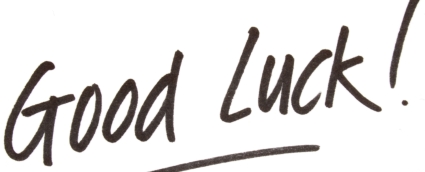Thanks for your feedback on this series about “How to be a Pro.” Even though I could go on forever about the importance of being a professional, I’d like to wrap up this topic by offering more tips from other pros and ten more nuggets to consider.
First, here are the links to the first and second part:
To finish with a bang, let’s here from some other pros first. This first tip is from Cam Banks, author and managing editor at Margaret Weiss Productions.
Don’t edit your book while you write. It will only take a hundred times longer to finish.–Cam Banks, Author of the Dragonlance novel, The Sellsword.
Many of you are either working on your next novel or are trying to work on/sell your first one. I’m pleased to offer you a few tips from Gary, the co-founder of Bubblecow. Bubblecow is a business that specializes in helping writers to get their book into print by offering editorial feedback, one-on-one mentoring, and publishing advice. Gary was kind enough to offer these tips on how to get published:
 Three Tips For Getting Published from BubbleCow
Three Tips For Getting Published from BubbleCow
- 1. Don’t be rubbish – Books get rejected from publishers for many reasons but by far the most common is that the writing is not of a publishable quality. It is true that all publishers are prepared to work with a writer to improve their book but this can only go so far. A book must arrive at the publishers being good enough to go into print as it is, if they feel a book needs too much work it will simply be rejected. It is the responsibility of a writer to deliver a manuscript for proposal that it the best it can possibly be. Writers often get just one shot and you don’t want to be rejected simply because you have spelling mistakes on the first page.
- 2. Spend time on your submission package – A submission package is typically a query letter, synopsis and fifty page, double spaced, extract. I have come across many amazing writers that simply go weak at the knees at the idea of writing a query and synopsis. In many cases writers have spent years preparing their novel and then want to knock off a submission in a few hours. It is essential that a writer invests as much time and effort as is needed to write a fantastic proposal. There are loads of great resources on the internet (e.g. How To Write A Book Proposal on BubbleCow) and I suggest a writer reads as many as possible before putting pen to paper (or finger to keyboard). The trick is to see the submission package as a sales document. The publisher will view your book as a product, so you must also. It is essential that you convince a publisher why your book will be the perfect match for them, who will buy your book and why they will part with their hard earned cash.
- 3. Be appropriate – Publishing, like any other business, is all about making money and publishers all have their own particular niches. It is the job of a writer to find the most appropriate publisher (or agent) for their book. A writer can save a lot of wasted submissions and depressing rejection letters by making sure they are getting their book in front of the correct pair of eyes. A writer needs to research the market and find out which publishers are publishing books similar to their novel. It is no good pitching a Science Fiction novel to a publisher who specialises in romantic fiction.
Special thanks to everyone who supplied tips for this series, your thoughts are appreciated! Now, to finish up I’d like to take the floor and provide you with ten more things to consider.
- 21. Format Your Manuscript Appropriately – Many publishers have different guidelines for formatting your manuscript. Yes, technology has changed since the industry standards first began, but remember — publishing is a collaborative process. Often, your manuscript will need to be type set, which is just one reason why those guidelines are there in the first place. Programs like Microsoft Word often have auto-formatting features which can make your life hell (trust me on this one, curly quotes are my mortal enemy), so I recommend writing in plain text. Currently, I have a serious crush on New Courier.
- 22. Learn How To Self-Evaluate – Sometimes, you have to sit yourself down and ask the tough questions. Am I really a writer? Is this story something other people will want to read? Should I give up on this story and move on to something else? In order to be honest with yourself, you need to learn how to self-evaluate your work. Other people’s opinions — especially those of your friends and family — won’t help you learn how to critique your own work. Of all the things you need to learn how to do, this is (by far) the hardest one.
- 23. Remember, One Editor’s Rejection Is Another Editor’s Approval – Just because one editor doesn’t like your short story does not mean it sucks. Seriously. At the same time, just because an editor loves, loves, loves what you wrote doesn’t guarantee your book will sell. Writing, like artwork, is subject to people’s opinions. No, that doesn’t mean that you shouldn’t care whether or not you write a crappy story, because there are (or were, rather) barriers to getting a book or short story published. Now that anyone can do it through self-publishing, there’s a lot of noise out there for readers to wade through. Quality is becoming increasingly important in this saturated market.
- In the end, this goes back to that whole “know how to self-evaluate” point I offered earlier. You have to know how to balance editorial feedback with the voice of your own muse inside your head. It’s definitely challenging to achieve that balance, but once you do you can make better judgments on when to revise and when to sell.
- 24. The Size Of The Publisher Means Different Things To Different People – A small press publisher produces books. A big publisher also produces books. While they are both structured differently, they both offer different benefits and drawbacks that are currently in flux, due to the state of the industry. Just because an author publishes through a small press doesn’t mean their book “wasn’t good enough” to get printed through the big guys. Every author makes different business decisions based on what they want to do with their career and who they know. (Of course, I’d also like to point out that big publishers aren’t evil overlords, too.) The bottom line is that the size of any business simply means they have a different structure and modus operandi.
- 25. Keep In Mind You May Have To Self-Promote – In a word: marketing. The days of writing for a year in a gorgeous woodsy cabin on an ancient typewriter are over. Just “how much” self-promoting you’ll end up doing will depend upon the size of the publisher, but don’t be surprised if you’re required to put in a little extra legwork. Based on everything I’m hearing, many writers are now expected to be entrepreneurs.
- 26. Don’t “Over” Self-Promote – Yeah…so I needed to put this follow-up tip here because there is such a thing as “too much” self-promotion. Here’s a reality check: When you engage in conversation, how much of the focus is on you? If your answer is: “Well, mostly me…” then listen up. Part of being a professional means understanding that everyone else is trying to be a successful writer, too. Seriously. Just talking about what you’re doing not only shows a lack of respect for other professionals, it also sows the seeds of mistrust in your work. If someone wants to check out you or your book — then open the door but don’t shove them through it. Several members in your audience are either a) working on a book b) have their own book to sell or c) are trying to pitch a finished book. It’s definitely something to keep in mind when you’re beating your readers to death with your sales pitch. Even in sales, people should come first.
- 27. Practice Getting In Front Of People – I’m terribly shy, especially when meeting people I don’t know. Often, my friends will say: “You would never know!” There’s a reason for that. I have a background in performing. When I started getting stage fright again, I worked with a great community theatre group and got my bum back on stage. I cannot stress enough the importance of learning how to be social and speak in front of other people. Yes, it is wholly counter intuitive to being a writer, but sometimes you just have to suck it up and overcome your issues.
- 28. Experiment, Experiment, Experiment – Hate romance? Read some, then try to write some. Loathe tie-in fiction? Pick your favorite character and try to write a story about it. Often, to get better at what I’m good at, I remove myself out of my element and write something that I’m not familiar with. (Usually its terrible poetry.) No, most of this stuff will never see the light of day, but it’s a way for me to help myself become a better writer. Also, playing with other genres or subject matters may also help you figure out what you want to write, too.
- 29. Master The Format, Not Just The Story – Every piece of writing has a structure or a format. Screenplays. Technical manuals. Flash fiction. Novels. That structure is often dissected, discussed, analyzed and experimented with, but there is still a structure to the writing. This goes back a little to my post about writing reviews, too. By “discovering” the structure of a work, you can not only speed up your writing process, but you’ll also help yourself understand the “product” better, too.
And last but not least, I’d like to offer this bit of advice:
- 30. Only You Can Tell Yourself If You’re Successful Or Not – In my experiences, I have had professionals tell me I’m not really a writer because I hadn’t sold a novel yet. A few have said that my publishing credits don’t really count because many of them are in the hobby games industry. On the flip side, I’ve had others tell me they wish they could be as “successful” as I am, too. Am I successful? To me, that’s a trick question because I look at my career as a process where I celebrate milestones. I’ve had a few milestones that have meant something to me, but I’m also looking forward to a few upcoming projects, too.
- The moral of my tale, is that only you can determine whether or not you’re successful. Some authors are happy publishing the “one book.” Others enjoy self-publishing and are fine with that. Several aspiring writers will only submit to what are considered “pro”-markets, because to them a “pro” credit means they’ll be successful. Of course, you do have to know what other people regard as “professional” in order to help you figure out your goals, but deciding what you want to do is different from being happy with what you’ve already written.
- No matter what anyone says, remember your success — like the quality of your work — is in the eye of the beholder.

